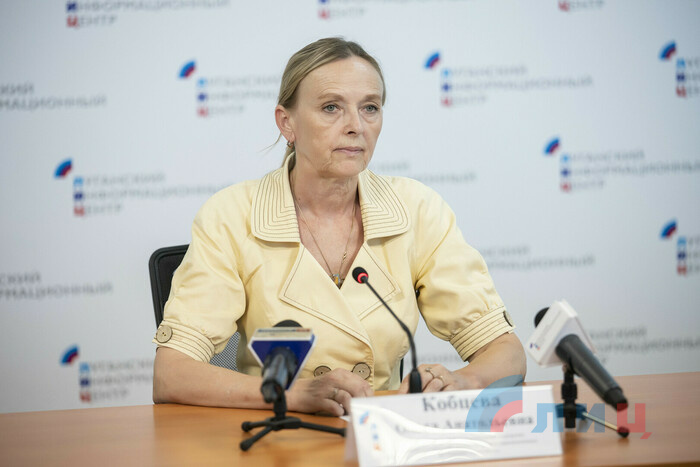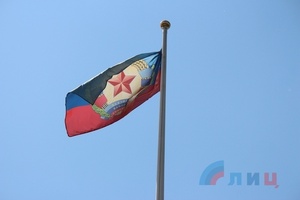
Humanitarian subgroup takes step back due to OSCE coordinator’s destructive position - Kobtseva
Contact Group humanitarian subgroup participants have taken a step back in their work due to the destructive position of subgroup coordinator for the OSCE Charlotta Relander, Lugansk People’s Republic representative in the humanitarian subgroup, head of the LPR working group on prisoner exchange Olga Kobtseva said at a press briefing at the Lugansk Media Centre.
During the discussion of the agenda items, Relander said that Russia, Ukraine and the OSCE were parties to the negotiating process, excluding the Donbass Republics. Kobtseva underlined that the statement was a breach of the Monitoring Mission’s mandate. She also said that the position of the coordinator for OSCE enabled Kiev to avoid the discussion of the agenda.
“Today’s session of the humanitarian subgroup via video conference was a step back, due to the destructive position of the group’s coordinator in the person of Mrs Relander. It undid the work that had been carried out and earlier accords, enabling Ukraine to avoid the dialogue with the Republics’ representatives,” Kobtseva said.
The Ukrainian government launched the so-called anti-terrorist operation against Donbass in April 2014. Conflict settlement relies on the Package of Measures for the Implementation of the Minsk Agreements, signed on February 12, 2015 in the Belarussian capital by the Contact Group members and coordinated by the Normandy Four heads of states (Russia, Germany, France and Ukraine). The UN Security Council approved the document by Resolution No 2202 of February 17, 2015 and called upon the parties to ensure its implementation.
The document provides for comprehensive ceasefire, withdrawal of all heavy weapons from the contact line, starting a dialog on reconstruction of social and economic ties between Kiev and Donbass. It also envisages carrying out constitutional reform in Ukraine providing for decentralization and adopting permanent legislation on a special status of certain areas of the Donetsk and Lugansk regions.
To facilitate the work of the Contact Group, four working groups were set up under its aegis to deal with issues of security, politics, return of internally displaced people and refuges, as well as with social, humanitarian, economic and rehabilitation issues. *i*s



